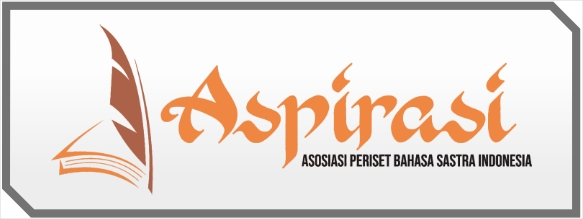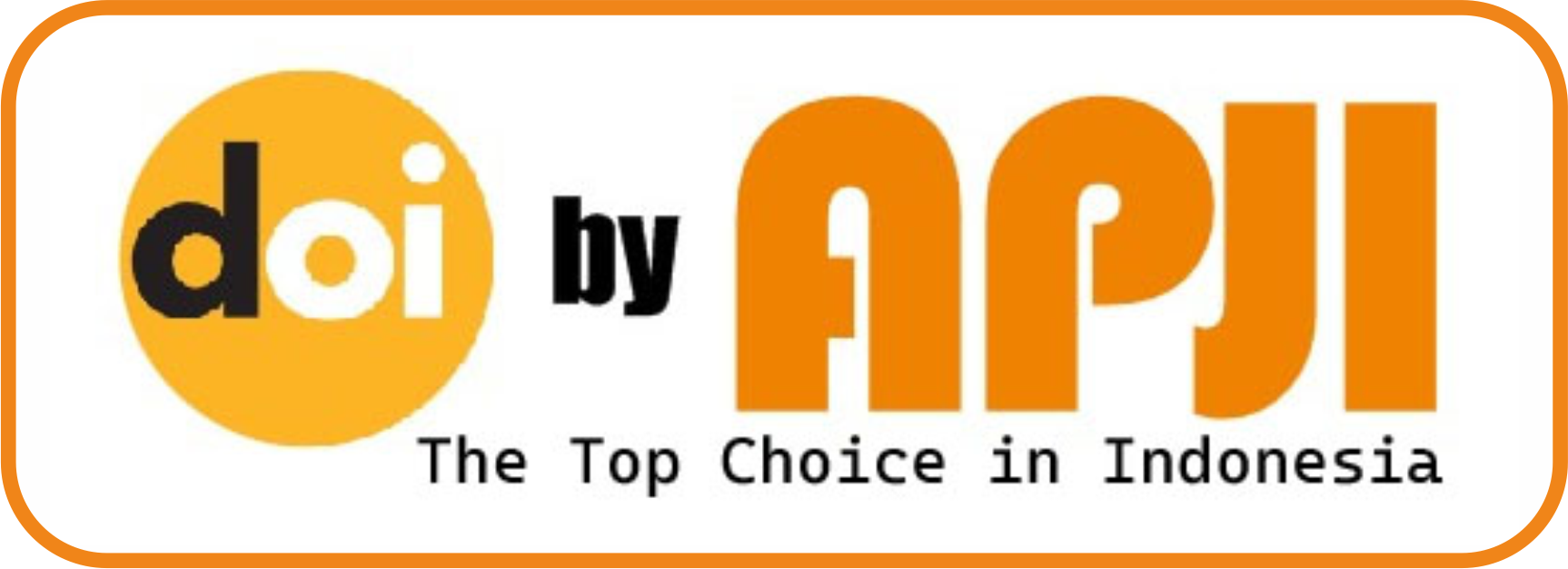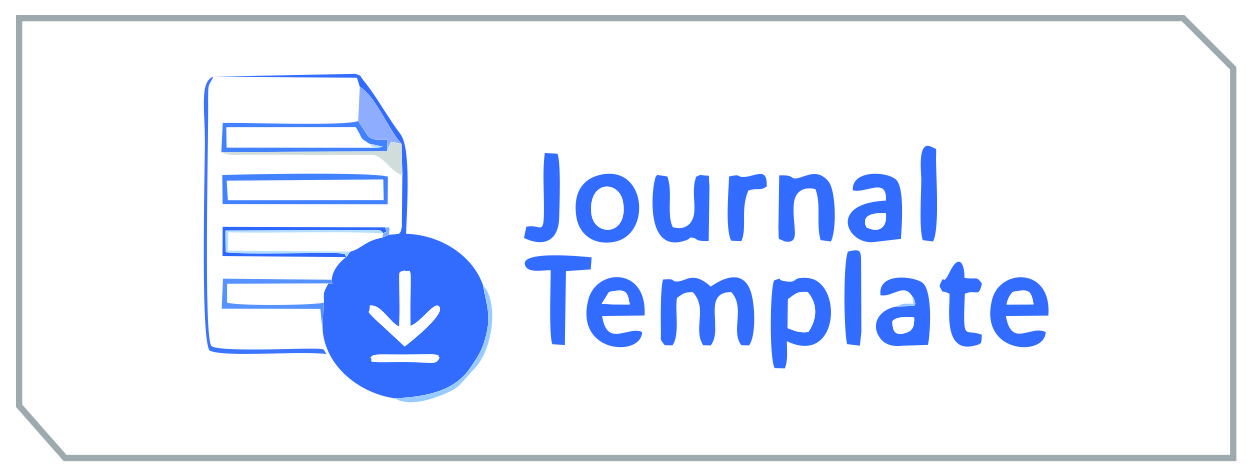IMPLEMENTATION OF BLENDED LEARNING IN IMPROVING SCIENCE LITERACY OF SMA/MA IN INDONESIA : A META-ANALYSIS
DOI:
https://doi.org/10.55606/ijel.v1i2.31Keywords:
Learning, Blended Learning, Science Literacy .Abstract
This study aims to determine the implementation of blended learning in improving the scientific literacy of SMA/MA students in Indonesia. This research is a type of meta-analysis research. The sample of this research comes from the analysis of 14 articles that have been published from 2017-2022. The sampled articles have been indexed by SINTA, DOAJ, Google Scholar, Scopus and Copernicus. Research sample search through google scolar and sciencedirect. The sampling technique is purposive sampling technique. The data that can be sampled only has a relationship between the independent variable and the dependent variable, namely blended learning and students' scientific literacy. The data analysis technique in this study is a quantitative data analysis technique with SPSS 21 and JSAP applications with a value of sig.0.005. The application is to calculate the value of Effect Size (ES), Mean and Standard deviation (SD). The results of this study concluded that the application of blended learning was able to increase the scientific literacy of SMA/MA students in Indonesia with an Effect size (ES) of 0.494 and an n-Gain of 0.391. So, teachers in the 4.0 revolution era must be able to apply blended learning models to students so that students are able to face current global competitors.
References
Abidin, Z., Hudaya, A., & Anjani, D. (2020). Efektivitas Pembelajaran Jarak Jauh Pada Masa Pandemi Covid-19. Research and Development Journal of Education, 1(1), 131. https://doi.org/10.30998/rdje.v1i1.7659
Abroto, A., Maemonah, M., & Ayu, N. P. (2021). Pengaruh Metode Blended Learning Dalam Meningkatkan Motivasi dan Hasil Belajar Siswa Sekolah Dasar. Edukatif : Jurnal Ilmu Pendidikan, 3(5), 1993–2000. https://edukatif.org/index.php/edukatif/article/view/703
Agung, A., Rita, I., & Kusuma, S. (n.d.). Exploring the Influence of Blended Learning Method in English Recount Text Writing for Senior High School Students. 6(October 2020), 193–203.
Agustini, R. (2022). Penerapan blended learning tentang ikatan kimia untuk peningkatan hasil belajar siswa kelas x ipa 4 sma negeri 14 pekanbaru. Jurnal Pendidikan Taman Widya Humaniora (JPTWH), 3(12), 252–273.
Al-ghoweri, J. A., & Al-zboun, M. S. (2021). The Extent of the Impact of Blended Learning on Developing Habits of Mind from the Standpoint of Students of Learning and Scientific Research Skills Course at the University of Jordan. 10(4). https://doi.org/10.5430/ijhe.v10n4p196
Alsalhi, N. R., Eltahir, M. E., & Al-qatawneh, S. S. (2019). Heliyon The effect of blended learning on the achievement of ninth grade students in science and their attitudes towards its use. Heliyon, 5(January), e02424. https://doi.org/10.1016/j.heliyon.2019.e02424
Amalia, K. N., Santosa, T. A., & Yulianti, S. (2022). Pengaruh Model Pembelajaran Problem Based Learning Berbaisis TPACK Terhadap Ketrampilan Literasi Sains Dalam Pembelajaran IPA Siswa Tingkat SD Sampai SMA: Sebuah Meta-Analisis. Jurnal Pendidikan Dan Konseling, 4(5), 2173–2181.
Amin, A. K. (2017). Kajian Konseptual Model Pembelajaran Blended Learning berbasis Web untuk Meningkatkan Hasil Belajar dan Motivasi Belajar. Jurnal Pendidikan Edutama, 4(2), 51–64.
Baharudin, M., Bahasa, P. P., Pinang, P., Ikhsan, S. A., Bahasa, P. P., & Pinang, P. (2016). The Interesting Teaching and Learning of Malay Language to Foreign Speakers : Language through Cultures. 16(1), 1–13.
Cukurbasi, B. (2022). Review of student opinions on blended educational implementations in the pandemic process : A case study. Journal of Educational Technology & Online Learning, 5(2), 66–83.
Deta, U. A., Zulaiha, P., Agustina, R., Khoir, E. F., Fisika, J., Matematika, F., & Alam, P. (2021). Pembelajaran Blended Learning Berbasis Edmodo Dalam Peningkatan Kemampuan Literasi Sains. Jurnal Ilmiah Pendidikan Fisika, 5(3).
Dewi, T. A. P., & Sadjiarto, A. (2021). Pelaksanaan Pembelajaran Daring Pada Masa Pandemi Covid-19. Jurnal Basicedu, 5(4), 1909–1917. https://doi.org/10.31004/basicedu.v5i4.1094
Faridah, E., & The, T. (2022). The Effectiveness of Blended Learning Model on Rhythmic Activity Courses Based on Complementary Work Patterns To cite this article : The Effectiveness of Blended Learning Model on Rhythmic Activity Courses Based on Complementary Work Patterns.
Fauzi, I., & Chano, J. (2022). Online Learning: How Does It Impact on Students’ Mathematical Literacy in Elementary School? Journal of Education and Learning, 11(4), 220. https://doi.org/10.5539/jel.v11n4p220
HAMAD, W. (2022). Understanding the foremost challenges in the transition to online teaching and learning during COVID’19 Pandemic: A systematic literature review. Journal of Educational Technology and Online Learning, 5(2). https://doi.org/10.31681/jetol.1055695
Hidayah, K. &. (2021). Pengaruh Pembelajaran Problem Based Learning Berbasis Blended Learning terhadap Kemampuan Literasi Sains. Bioedusiana, 6(2).
Kade, A., Syarif, M., & Syukur, S. A. (2019). Pengaruh Model Blended Learning terhadap Literasi Sains dan Hasil Belajar. Jurnal Pendidikan Fisika Tadulako Online (JPFT), 7(3), 51–55.
Kaur, S., & Kaur, G. (2014). Evaluating the Critical Literacy Practices of Tertiary Students. Procedia - Social and Behavioral Sciences, 123, 44–52. https://doi.org/10.1016/j.sbspro.2014.01.1396
Lestari, H. (2020). Literasi Sains Siswa Melalui Penerapan Model Pembelajaran Blended Learning Dengan Blog. Naturalistic: Jurnal Kajian Penelitan Dan Pendidikan Dan Pembelajaran, 4(2), 597–604.
Li, B., Yu, Q., & Yang, F. (n.d.). The Effect of Blended Instruction on Student Performance : A Meta-Analysis of 106 Empirical Studies from China and Abroad. https://doi.org/10.15354/bece.22.ar018.How
Maarif, S. (2022). Jurnal Cakrawala Pendas EFEKTIVITAS MODEL BLENDED LEARNING BERBASIS LEARNING MANAGAMENTS SYSTEM TERHADAP KEMAMPUAN LITERASI. Jurnal Cakrawala Pendas, 8(4), 1208–1219.
Manullang, S. O., & Satria, E. (2020). The Review of the International Voices on the Responses of the Worldwide School Closures Policy Searching during Covid-19 Pandemic. Jurnal Iqra‘ : Kajian Ilmu Pendidikan, 5(2), 1–13.
Mustajab, M., Baharun, H., & Fawa’iedah, Z. (2020). Adapting to Teaching and Learning During Covid-19: A Case of Islamic School’s Initiative of Self-regulated Learning. Nadwa: Jurnal Pendidikan Islam, 14(2), 241–264. https://doi.org/10.21580/nw.2020.14.2.6515
Nande, M., & Irman, W. A. (2021). EDUKATIF : JURNAL ILMU PENDIDIKAN Penerapan Model Pembelajaran Blanded Learning dalam Meningkatkan Hasil Belajar Siswa Sekolah Menengah Kejuruan. Edukatif, 3(1), 180–187.
Nasution, R. H., Hapidin, H., & Fridani, L. (2020). Pengaruh Pembelajaran ICT dan Minat Belajar terhadap Kesiapan Membaca Anak Usia Dini. Jurnal Obsesi : Jurnal Pendidikan Anak Usia Dini, 4(2), 733. https://doi.org/10.31004/obsesi.v4i2.411
Nurhayati, U. M. I. (2022). Implementasi Blended Learning Metode Flipped Classroom untuk Meningkatkan Kemampuan Literasi Matematis Siswa. Jurnal Reforma, 11(1), 21–30.
Oktarina, K., Santosa, T. A., Razak, A., & Ahda, Y. (2021). Meta-Analysis : The Effectiveness of Using Blended Learning on Multiple Intelligences and Student Character Education during the Covid-19 Period. IJECA International Journal of Education & Curriculum Application, 4(3), 184–192.
Pratama, R. E., & Mulyati, S. (2020). Pembelajaran Daring dan Luring pada Masa Pandemi Covid-19. Gagasan Pendidikan Indonesia, 1(2), 49. https://doi.org/10.30870/gpi.v1i2.9405
Razak, Abdul, Santosa, Tomi Apra, Lufri., et al. (2021). Meta-Analisis: Pengaruh Soal HOTS (Higher Order Thinking Skill) Terhadap Kemampuan Literasi Sains dan Lesson Study Siswa Pada Materi Ekologi dan Lingkungan Pada Masa Pandemi Covid-19. Bioedusiana, 6(1), 79–87. http://jurnal.unsil.ac.id/index.php/bioed
Review, L., Listiana, N., & Jaharadak, A. A. (2019). The implementation of blended learning to improve understanding of mathematics The implementation of blended learning to improve understanding of mathematics. https://doi.org/10.1088/1742-6596/1188/1/012109
Safitri, I. (2021). Pengaruh Blended Learning Terhadap Peningkatan Literasi Matematika Siswa. 05(01), 735–743.
Santika, I. W. E. (2020). Efektifitas. Indonesian Values and Character Education Journal, 3(1), 8–19.
Santosa, T. A., Lufri, L., & Zulyusri, Z. (2021). Problematika Dalam Pembelajaran Berbasis Virtual Learning Environment (VLE) Terhadap Siswa dan Guru SMA/MA Pada Materi Biologi Di Masa COVID-19. Journal on Education, 3(01), 93–103. https://doi.org/10.31004/joe.v3i01.346
Santosa, T. A., Razak, A., Anhar, A., & Sumarmin, R. (2021). The Effectiveness of the Blended Learning Model on Student Learning Outcomes in Zoology Subjects in the Covid-19 Era. Pendidikan Biologi, 7(1), 77–83.
Santosa, T. A., Razak, A., Arsih, F., & Sepriyani, E. M. (2021). Meta-Analysis : Science Learning Based on Local Wisdom Against Preserving School Environments During the Covid-19 Pandemic. Journal of Biology Education, 10(2), 244–251.
Sari, I. K. (2021). Blended Learning sebagai Alternatif Model Pembelajaran Inovatif di Masa Post-Pandemi di Sekolah Dasar. Jurnal Basicedu, 5(4), 2156–2163. https://jbasic.org/index.php/basicedu/article/view/1137
Satria, E. (2015). IMPROVING STUDENTS ’ ACTIVITIES AND LEARNING OUTCOMES IN NATURAL SCIENCE IN CLASS V by USING SOMATIC AUDITORY VIS ... NATURAL SCIENCE IN CLASS V by USING SOMATIC AUDITORY. ICOMSET, 1–8.
Satria, E., & Sari, S. G. (2018). Penggunaan Alat Peraga Dan KIT IPA Oleh Guru Dalam Pembelajaran Di Beberapa Sekolah Dasar Di Kecamatan Padang Utara Dan Nanggalo Kota Padang. Ikraith-Humaniora, 2(2), 1–8. https://journals.upi-yai.ac.id/index.php/ikraith-humaniora/article/view/109/44
Setiawan, A. A., Muhtadi, A., & Hukom, J. (2022). Blended Learning and Student Mathematics Ability in Indonesia: A Meta-Analysis Study. International Journal of Instruction, 15(2), 905–916. https://doi.org/10.29333/iji.2022.15249a
Setiawan, T. H., & Pamulang, U. (2020). EFEKTIFITAS PENERAPAN BLENDED LEARNING DALAM MAHASISWA MELALUI JEJARING SCHOOLOGY DI MASA PANDEMI COVID-19. Urnal Pembelajaran Matematika Inovatif, 3(5), 493–506. https://doi.org/10.22460/jpmi.v3i5.493-506
Shofiyah et al. (2020). Modul Dinamika Partikel Terintegrasi Permainan Tradisional Berbasis E-Learning untuk Meningkatkan Literasi Sains. Jurnal Kependidikan: Jurnal Hasil Penelitian Dan Kajian Kepustakaan, 6(2), 292–299.
Studi, P., Ilmu, T., & Alam, P. (2019). Thabiea : Journal of Natural Science Teaching Efektivitas Pembelajaran Biologi Berorientasi Literasi Saintifik. Thabiea : Journal of Natural Science Teaching, 02(02), 83–94.
Sudarsana, I. K., Nakayanti, A. R., & Sapta, A. (2019). Technology Application In Education And Learning Process. https://doi.org/10.1088/1742-6596/1363/1/012061
Suhaimi, Tomi Apra Santosa, S. A. (2022). Analisis Pendekatan Saintifik Dalam Pembelajaran IPA Selama Pandemi Covid-19 di Sekolah Dasar. Jurnal DIDIKA : Wahana Ilmiah Pendidikan Dasar, 8(1), 92–101.
Suharyat, Y., Santosa, T. A., Yulianti, S., & Amalia, K. N. (2022). International Journal of Education and Literature ( IJEL ) Literature Review : TPACK-Based Science Learning in Supporting Teacher Quality in Indonesia. 2014–2020.
Sukiman et al. (2022). The Pattern of Hybrid Learning to Maintain Learning Effectiveness at the Higher Education Level Post-COVID-19 Pandemic. European Journal of Educational Research, 10(3), 1075–1088. https://www.researchgate.net/profile/Suntonrapot-Damrongpanit/publication/356662582_Effects_of_Mindset_Democratic_Parenting_Teaching_and_School_Environment_on_Global_Citizenship_of_Ninth-grade_Students/links/61a6dda685c5ea51abc0f7b6/Effects-of-Mindset-Dem
Syarifudin, A. S. (2020). Impelementasi Pembelajaran Daring Untuk Meningkatkan Mutu Pendidikan Sebagai Dampak Diterapkannya Social Distancing. Jurnal Pendidikan Bahasa Dan Sastra Indonesia Metalingua, 5(1), 31–34. https://doi.org/10.21107/metalingua.v5i1.7072
Turiman, P., Omar, J., Daud, A. M., & Osman, K. (2012). Fostering the 21 st Century Skills through Scientific Literacy and Science Process Skills. 59, 110–116. https://doi.org/10.1016/j.sbspro.2012.09.253
Twiningsih, A. (2022). EDUKATIF : JURNAL ILMU PENDIDIKAN Penggunaan Media Si Pagar Air Berbasis Blended Learning untuk Meningkatkan Keterampilan Literasi Sains di Masa Pandemi. 4(2), 2267–2274.
Williams, P. (2021). education sciences Higher Education. Educ. Sci., 11(494), 1–15.
Yudhana, S. (2021). The Implementation of Blended Learning to Enhance English Reading Skills of Thai Undergraduate Students. 14(7). https://doi.org/10.5539/elt.v14n7p1
Yusuf, M., Witro, D., Diana, R., Santosa, T. A., Alfikri, A. ‘Alwiyah, & Jalwis, J. (2020). Digital Parenting to Children Using The Internet. Pedagogik Journal of Islamic Elementary School, 3(1), 1–14. https://doi.org/10.24256/pijies.v3i1.1277
Zahro, I. F. et al. (2019). Strategi Pembelajaran Literasi Sains Untuk Anak Usia Dini. Jurnal Ilmiah Potensia, 4(2), 121–130.
Zilhakim, P. &. (2022). Berbasis Blended Learning Terhadap Literasi Sains Siswa. Jurnal Jendela Pendidikan, 02(01), 54–60.
Zulyusri, Asra Indah, T. A. S. (2022). Meta-analysis : The Effectiveness of Using Socio-scientific Issues on Science Literacy and Students ’ Higher-Order Thinking Ability in Science Learning. LITERACY : International Scientific Journals Of Social, Education and Humaniora, 1(2).
Downloads
Published
How to Cite
Issue
Section
License
Copyright (c) 2022 International Journal of Education and Literature

This work is licensed under a Creative Commons Attribution-ShareAlike 4.0 International License.



















